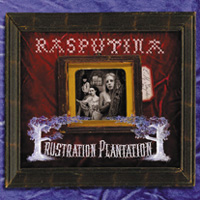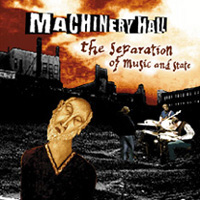 It Crawled From The South
It Crawled From The South
An R.E.M. Companion by Marcus Gray
(Da Capo Press)
by Jamie Kiffel
Although It Crawled From the South is by far the lengthiest book about R.E.M. that I have encountered, I did not expect to find much within its pages that I had not seen or heard before. I did not foresee the existence of an adult writer who is as psychically altered by the band as I was during the days when my mother would bribe me to keep my R.E.M. references down to one every three words. Unlike the snooty R.E.M. experts on the Prodigy bulletin boards of my youth, Marcus Gray does not balk at describing the beginnings of the band, the complete list of albums they have produced, and even the hashed, rehashed, and Kentucky fried tales of the band’s early days in Athens, Georgia. Amazingly, however, Gray goes beyond the glitteringly-illustrated fan-loving texts and even the eyeball-frying jumble of apocryphal internet mutterings, to create a complete academic survey of R.E.M. To call this “comprehensive” is a Stipean understatement. This could be a doctoral thesis.
Unapologetically, Gray wades through reams of scores, listing alternate titles, guest appearances, and even the deeper implications of their packaging. With full professorial respect, Gray addresses each line of each song, and discusses its place in the cosmic schema. For example, of the notoriously enigmatic song, “Perfect Circle” Gray postulates, “The awkwardness and growing pains of pre-adolescence represented by the kids at play are contrasted with post-coital tristesse…overshadowed by images of age and death. …(T)he `perfect circle’ also suggests the greatest circle of all, the cycle of life.” I half-cringe at my own belief that the song is about feeling alone on a rainy day. The greater question here, however, is, of how much detailed speculation is a pop song worthy?
At the age of 14, I was fascinated by the mere promise of a correct lyric sheet from Stipe’s secret carrels. I recall hours spent with my ear pressed to my tinny tape recorder, stopping and replaying “Radio Free Europe” until the tape wore blank at “comin’ off, we’re in transit” or “comma loft, wear in the stanza” or whatever it is that Michael is sharing. For this reason, it is interesting to read the definitive opening line, “Keep me out of country in the word.” It is almost equally disheartening, however, to read Michael’s statement, “I think it’s OK every now and then to throw a little bit of nonsense in.” What? There is no Communist manifesto planted in the music? The lyricist goes on, “Three-quarters of my lyrics probably come from overheard conversations. I steal a lot, basically.” Following this, Gray traces thematic trends in Stipe’s lyrics, including communication problems. Is this the same as saying that a book succeeds in breaking down conventions by being unreadable? Michael complains, “I thought `Disturbance At The Heron House’ was the most obvious song I’d ever written, but not one person has worked out what in hell it’s about.” No kidding, Stipe.
Despite its almost painfully exhaustive style, It Crawled From the South stands strongly as a thorough and thoughtfully-produced reference for anyone who harbors the vaguest curiosity about the band, their thoughts, or their work. It also includes an index to make cross-referencing easier. Reading the work straight through can be boggling, as it includes almost every tidbit I have ever picked up on Prodigy and America Online, a few I have not, and even references to permanent lyric postings on the web. It is not infallible, as it is written from an Englishman’s perspective, and at times, takes liberties with the language. However, it also possesses the scholarly lilt of high English, which fosters credibility at even the most preposterous of times. I recommend keeping this book close to the stereo, for whenever the mood to interpret Stipean hits. At the same time, remember that if you are convinced that you have conclusive evidence concerning the true nature and intent of an R.E.M. song, you probably need to put the liner notes away and turn up the stereo.



